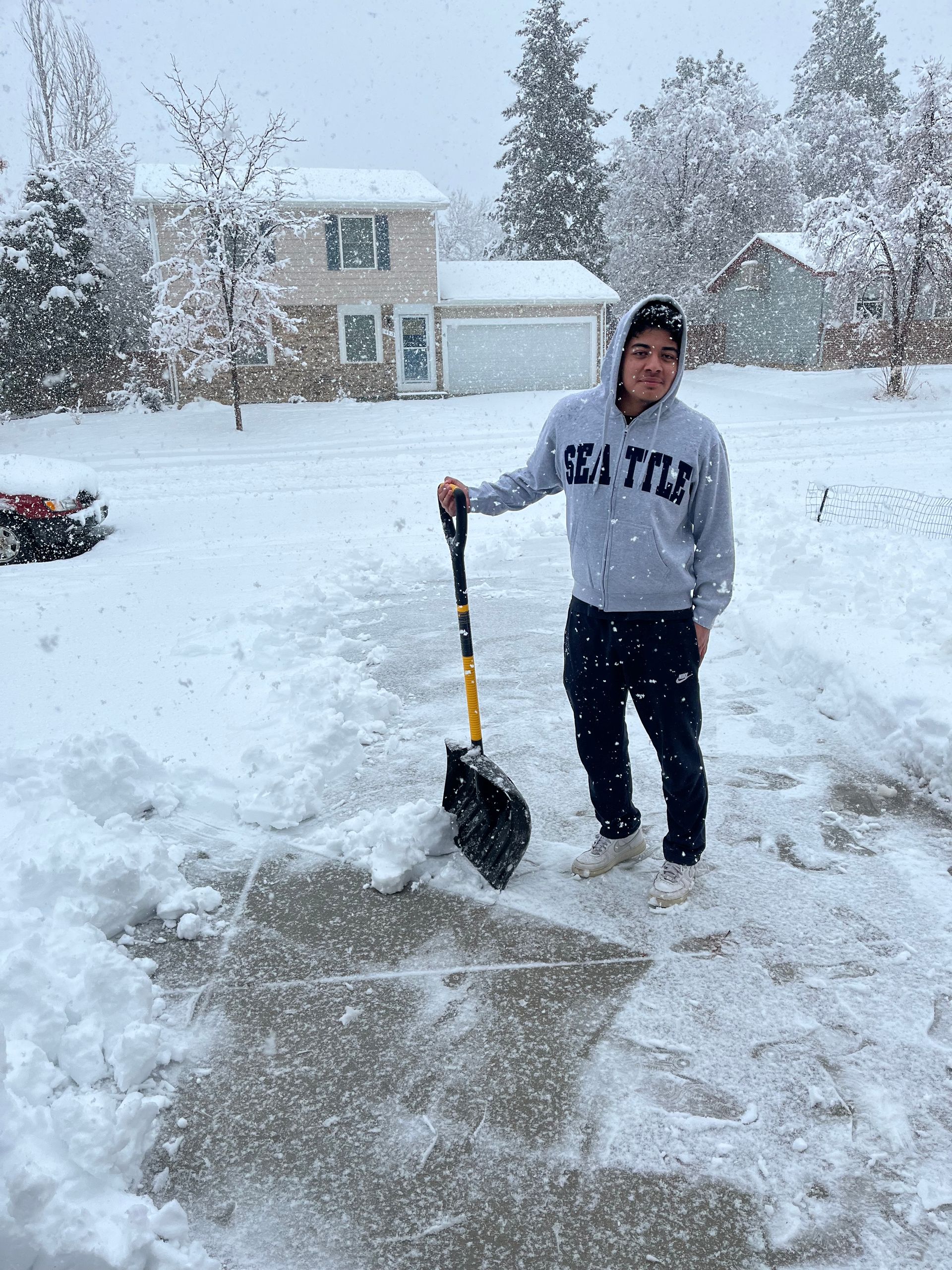Thursday's Columns
February 8, 2024

A stranger just happy to help.
Our Story
by
Lawrence Abby Gauthier
ace reporter
The Westphalia Periodic News
Encounter with the Force of Nature
Saturday morning I felt like something best thrown away, like an empty carton of milk. At the catered party the night before I had a great time but drank too much wine and Saturday morning I felt like crap. Maybe there’s a better word to describe it, but crap will do. Like there was nothing left that I could offer in a world in need of much.
But I had a great time at the party. I love meeting new people and hearing their stories. There was somebody there from Russia and several from France and others who’d lived all over the world. There was somebody there from Ohio, a Californian expatriate and even a woman who’d been a fashion model in New York and London back in the day. It was like being high enough on a cliff to see all the parts making up the whole.
But I woke up Saturday morning at the bottom of the cliff with nobody to blame but my own useless self.
I staggered into the kitchen and said:
“Do you think I should write a column this week?”
Without looking up from what she was doing at the kitchen stove, my wife, Culley Jane, the retired professor, said “ya” with the inflection of a “why not?”
I thought that was a good question.
Why not?
I could think of lots of other things I could do. I could take a long ride on our mechanical bike, headphones cranked to the max – the Eagles, Santana… Beethoven’s 5th…
I could get comfortable on our new bed with the cats and read… I’ve been re-reading Richard T. Ely’s “An Introduction to Political Economy,” published in 1889. An original founder of the American Economics Association, he challenged the foundational doctrine of the “dismal science” being taught to the sons of rich parents at places like Harvard and Cambridge and Yale. Young men (there were no women back then) who would become influential over the lives of others were taught to believe that humans always acted selfishly but couldn’t help it because it was their nature – their human nature. Ely, however, said people without a mental disorder naturally want to be helpful; that people, like language, are social constructions, principally motivated by the welfare of their groups -- their family, friends, community… national identities. Ely was born six years before the Civil War and died in 1943 at the height of WWII. He must have wondered: “If they had only listened.”
I could make a quiche. I was sure we had everything in the fridge that I would need – eggs, heavy cream, European cheese, a leek, shallots and olive oil from the cultivated olive groves nestled up close to the sunny coastlines of the Mediterranean Sea, known for its nude beaches and genocides -- Carthage, the Crusades, the burning of the library in Alexandria.
I could watch the news.
I could start getting our taxes ready for the official inspection, like presenting documents at a checkpoint.
I could help feed the world. I could whip up a big pot of potato soup to take to the Venezuelans camped out in tents on the grounds of a church on the other side of town like an eddy in the wide river of people coming our way; fugitives from worlds dreamed up by High Priests in the Church of Economic Orthodoxy.
It was snowing hard outside, like a northern plains blizzard plus icy winds sweeping down off the Rockies. To get to the stranded Venezuelans I would have to start shoveling the driveway, but the snow was already deep and wet and heavy and the pavement underneath would be slick and a fall could mean disaster -- each step anymore like the great question every old trucker dreams about at night… “Is the pavement just wet, or a sheet of black ice?”
I could sit around and do nothing. I’d earned it. I’ve never not had a job, ever since I was ten or so and older folks in the neighborhood would give me a nickel to keep their coal hoppers filled at night, down in their basements, which were dark and scary places where I didn’t want to go. But my dad said that one day I would be old like them and would need a little help.
The doorbell rang.
It was a young guy in his teens who was visiting his littler cousins who live in the house next door.
“Could I help clear your driveway?” he said.
While his littler cousins jumped into snowbanks and made a snowman and squealed, he went to work.
I watched him through our front window, trying to remember what muscles like that had felt like when I was the starting halfback and setting school records in the four-forty and the pole vault.
When he was done, I bundled up and went outside to give him a twenty-dollar bill, but he wouldn’t take it. “You don’t have to do that,” he said.
“I know I don’t have to,” I said, “but I want to.”
“You don’t have to,” he repeated.
“Then give it away,” I said. “Pass it on. Donate it to a charity. Give it to one of the Venezuelans in tents in this weather on the other side of town. Give it to somebody who needs it.”
“You need it,” he said. “I just want to help.”
Culley Jane, my wife, the retired professor, was upstairs working on her latest novel.
“I think I’ll write a column this week,” I told her.
“Good,” she said and went back to work.
